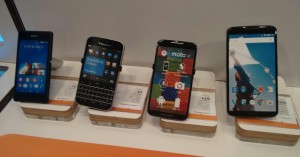For those of you that have attended Mr. Yudes’ annual ICLE seminar: Family Law Update and/or those of you that have paid close attention to newly published trial court decisions over the past three (3) years will not be surprised to find that the Honorable Lawrence R. Jones, J.S.C., a Superior Court Judge in Ocean County, has issued many trial court level decisions that have become published. Beginning with Benjamin v. Benjamin, which was decided in October 2012 and was approved for publication in February 2013, Judge Jones has issued a total of nine (9) decisions published decisions.
On August 11, 2015, Judge Jones issued a decision, which has not yet been approved for publication but very well could end up being his tenth published decision. That decision, E.C. v. R.H., deals with the issue of the admissibility by the court of evidence obtained directly from a litigant’s cell phone during a trial involving whether to issue a final domestic violence restraining order. As Judge Jones references and, in fact takes judicial notice thereof, it is becoming more common in this technological age for litigants, particularly litigants who are self-represented, to seek to present evidence located on a smart phone during a domestic violence hearing. 
In domestic violence proceedings, which often involve consideration of communications that are allegedly harassing or threatening, communications between the parties may play a crucial role in determining the outcome of the proceeding. Accordingly, it is not uncommon or unreasonable for a litigant to want to rely upon and enter into evidence various communications contained on a cell phone or other electronic device, whether it be a voicemail, text message, picture message, tweet, post or some other form of electronic or social media communication. However, as Judge Jones indicates and sets forth in his decision, entering this information into evidence as part of the record proves problematic when there are no hard copy versions of the evidence. Those problems are more fully set forth by Judge Jones as follows:
- When a litigant attempts to offer into evidence images on a cell phone screen, it is impractical if not impossible to preserve that specific image for the record unless there is also a hard copy printout of the image available as well.
- A pocket cell phone is by definition small, with an even smaller screen. Consequently, only small portions of documents may be visible and viewable at one time, often creating reading challenges even after on-screen enlargement.
- Due to the physical layout of most, if not all, courtrooms it is extremely impractical for the court and both parties to all view evidence on a cell phone at the same time, as compared to viewing duplicate hard copy printouts of the same document. Therefore, the actual cell phone must be passed around between each litigant and the court, which can significantly slow down the trial.
- If a party orally reads a text or email into the record, and if the other party and the court have no available hard copies from which to simultaneously read and follow along, there is no guarantee that the oral recitation is accurate.
- As regarding voice mail evidence stored on cell phones, it is often difficult to hear the exact words of an audio recording after only one review, and may require more attempts.
- If, after the close of testimony the court wishes to again review all electronic cell phone evidence as part of the process of judicial deliberation before rendering a decision, the court is practically unable to do so without the benefit of a hard copy form of the evidence.
Accordingly, Judge Jones provides the simple suggestion for all litigants in domestic violence proceedings to avoid these pitfalls by providing a hard copy form of the cell phone or electronic device evidence that they would like to produce in court. Specifically, Judge Jones provides the following helpful chart:
Cell Phone Evidence to Hard Copy Form
E-mails and Text Messages to Printed on Paper;
Social Media Messages to Printed on Paper;
Photographs to Printed on Paper;
Audio Recordings to CD or Casette; and
Video Recordings to DVD.
In the present case, Judge Jones determined that it appeared that both parties wanted to be able to produce evidence from their cell phones into the record at the time of the final hearing. Accordingly, under the discretion a trial court judge is afforded, Judge Jones adjourned the hearing with the specific instruction and order given to both parties to have hard copy forms of any and all cell phone evidence they wished to produce and enter into evidence.
This opinion, while obviously having no precedential effect at the current time, is a good illustration of using logic to assist in practical issues that continue to come up in trials. It is likely a good way for trial courts to operate, at least procedurally, when it comes to this type of issue as it makes it easier on everyone while also complying with the Court Rules and Rules of Evidence. The attorneys at James P. Yudes, P.C., are well versed in domestic violence proceedings and all other family law matters and therefore are willing and able to assist you with any problems that may arise.
 New Jersey Divorce and Family Lawyer Blog
New Jersey Divorce and Family Lawyer Blog

